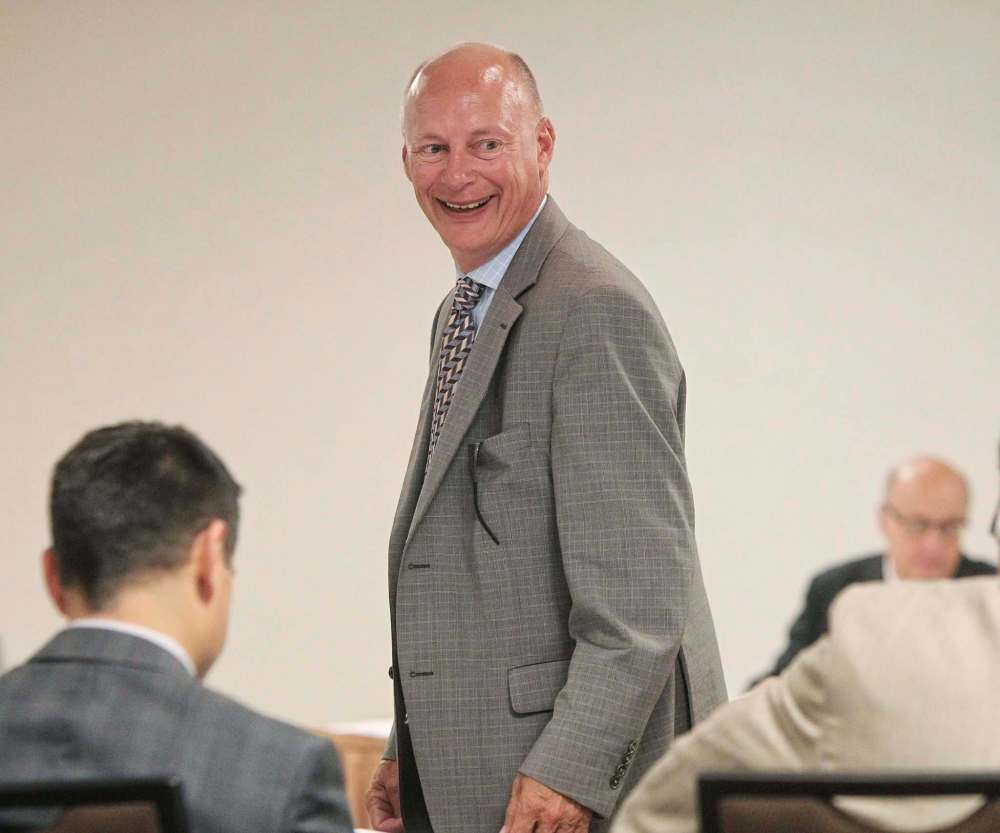Driver beats speeding ticket on French-language grounds
Advertisement
Read this article for free:
or
Already have an account? Log in here »
To continue reading, please subscribe:
Monthly Digital Subscription
$19 $0 for the first 4 weeks*
- Enjoy unlimited reading on winnipegfreepress.com
- Read the E-Edition, our digital replica newspaper
- Access News Break, our award-winning app
- Play interactive puzzles
*No charge for 4 weeks then billed as $19 every four weeks (new subscribers and qualified returning subscribers only). Cancel anytime.
Read unlimited articles for free today:
or
Already have an account? Log in here »
Hey there, time traveller!
This article was published 15/08/2017 (2442 days ago), so information in it may no longer be current.
A Winnipeg lawyer whose first language is French has beat a speeding ticket because the officer who pulled him over was unable to speak to him in his mother tongue.
The matter was set to go to court Aug. 22, but Antoine Hacault received an email yesterday informing him that since his language rights were not respected, the matter is being dropped.
Hacault was pulled over by the RCMP last year while allegedly speeding on Highway 59 south of the St-Pierre-Jolys.

When approached by the officer Hacault spoke to him in French, but was responded to in English.
In designated bilingual areas, police are required to actively offer services in French, according to the Official Languages Act and the Charter of Rights and Freedoms.
The officer not only made no active attempt to offer service in French, but also filled out his speeding ticket in English, according to the lawyer.
“I was disappointed. They’re aware of their obligations, or you expect law enforcement to be aware of their charter obligations and to obey the law – especially the charter, it’s the most important law in Canada,” Hacault said Wednesday.
The proceedings were stayed based on a recommendation from the province’s constitution law lawyer, Hacault said. Had the matter gone before the court, he would have made the same argument that was cited in the recommendation.
Hacault has been practicing law for more than 30 years and has taken cases regarding Franco-Manitobans’ language rights to the Supreme Court in the past.
He went on to say that his case is not without precedent and similar situations have played themselves out in courts across the country.
When asked how often a Francophone’s language rights aren’t respected in similar circumstances he said, “A lot of people don’t do or say anything about it.”
“If it’s a $200 ticket, most people won’t spend $1,000 or $2,000 on a lawyer to fight it. I had to spend a lot of my personal time fighting this. I don’t know how often the RCMP doesn’t respect people’s language rights. You’d have to ask them.”
The RCMP officer who pulled over and ticketed Hacault was from Selkirk and had recently been transferred to fill in at the bilingual area.
“If someone has a language preference we encourage them to make that known to the officer so that arrangements can be made to receive their information in the official language of their choice,” RCMP spokeswoman Tara Steel wrote in a past email to the Free Press.
That is a notion Hacault flatly disagrees with, saying that citizens shouldn’t have to ask to have their language rights respected.
“He didn’t offer to get somebody to speak to me in French. There is a constitutional obligation for them to make the offer,” Hacault said.
“You don’t have to ask to have your constitutional rights respected. You don’t have to ask the RCMP to follow the constitution. The charter is there for a reason and the rule of law means everybody – even the RCMP – has to respect the law.”
At the time of publication that RCMP had not responded to a request for comment on the outcome of the case.
ryan.thorpe@freepress.mb.ca

Ryan Thorpe
Reporter
Ryan Thorpe likes the pace of daily news, the feeling of a broadsheet in his hands and the stress of never-ending deadlines hanging over his head.


